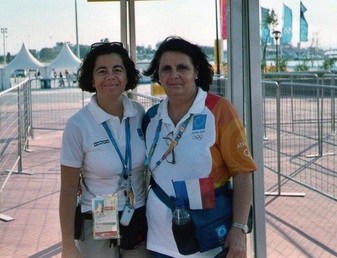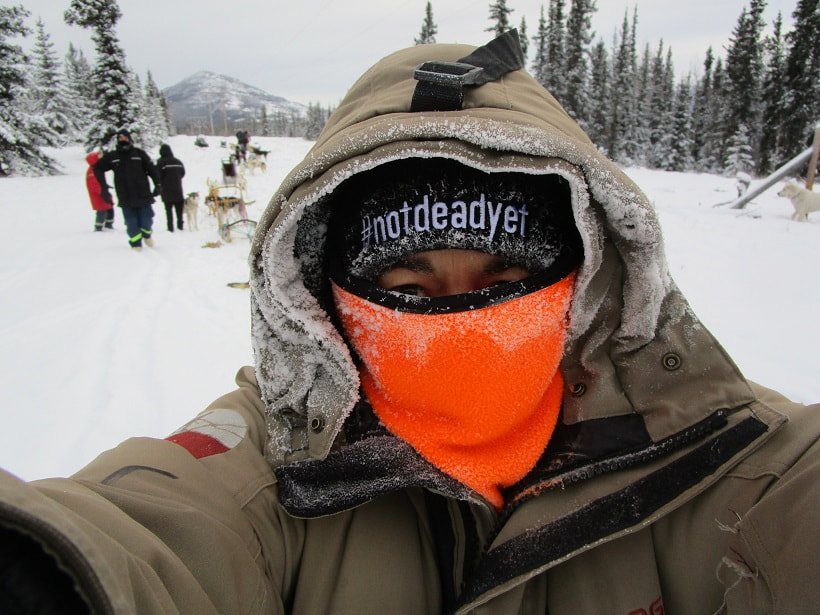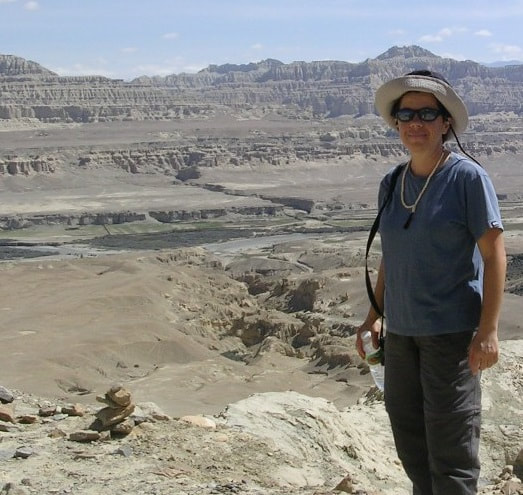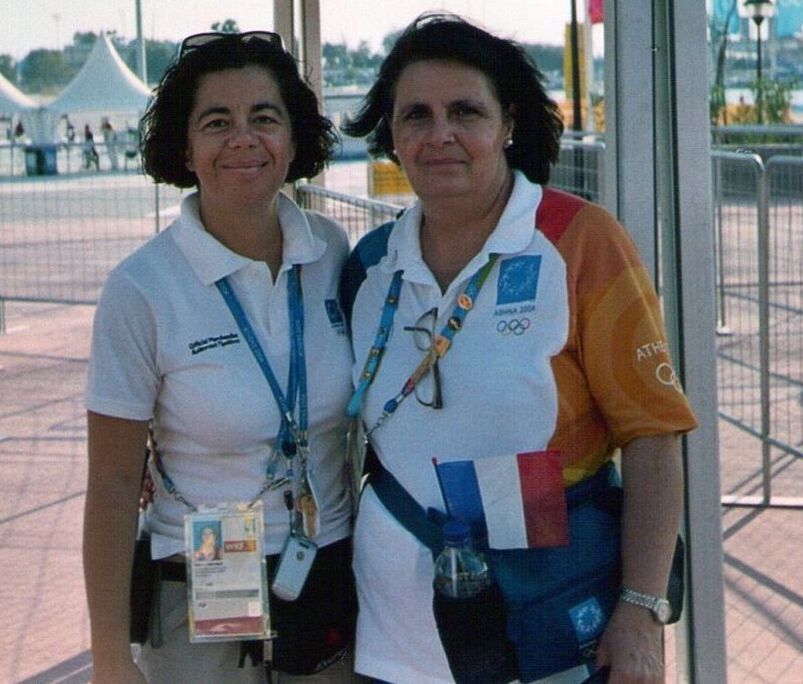|
5.30am one balmy August morning. Stacey and I stand bleary-eyed outside the security gates of the Faliro Sports Pavilion in downtown Athens. We’re waiting on a delivery of Olympic merchandise for our retail outlets at the handball and taekwondo venue - our "home" for the next three weeks. As deliveries can only be made between midnight and 6am, before the security lockdown, it explains why we’re here at such an irreverent hour of the morning. 6:10am: the delivery truck still hasn't arrived. Dawn breaks and a pale pink/orange glow slowly spreads across the sky. Ring. Ring. “Our computers have crashed,” the warehouse manager informs us, “The truck can't leave the warehouse without the delivery docket. You’ll have to come back tomorrow.” We agree to return the next day at the more civilized hour of 7am to count and stack boxes in the cool of the morning, before the oppressive Athens heat kicks in. “Better call in our two other assistant managers,” Stacey decides. One pin, two pins, three pins Next morning, the truck delivers nine pallets of boxes. We start the painstakingly slow job of counting every t-shirt, every cap, every key ring, every fridge magnet, every mascot and every Olympic pin. “I can feel RSI creeping into my fingers,” I announce in the second hour. Between the four of us, it takes us five hours to finish the stocktake; we’ve repacked all the boxes, labeled them and stacked them in the storage container. Gold medal performances As the Olympic Games swing into action on 15 August, we have our own gold medal performances at Team Merchandise. Records tumbled early as Stacey and I produced a super-human effort: 21-hour marathon shift, followed by two hours of sleep. We arrived at 6am on the first day of the Games and didn’t leave until 2am the next morning, only to return to work again at 6am. In a haze of sleep-deprived delirium, we continued to push through the 18-hour barrier for five days. Fortunately, we lived five minutes away by bus/taxi which gave us maximum enjoyment of our precious sleeping time. “See you again in two hours,” became our daily joke. These ultra-marathon shifts were caused by the prompt sacking of our two 2ICs who consistently failed to perform to such high Olympic standards. Their Greek male arrogance caused much angst and unrest among our predominantly female sales crew. “This is a job for our big Aussie bloke manager,” we agreed, and gratefully handed over the task of escorting the protesting 2ICs out through the security gates. The appointment of a new (female) assistant manager resulted in a more relaxed workload; the three of us each enjoyed 10 hours of sleep at night – luxury! We still worked 10-12 hour shifts each day, but the extra sleep made a noticeable difference to our health and mental well-being. 1.2 score for balancing technique Our second Olympic hurdle was balancing the cash register sales every night. That was my job. We had two sales outlets and four cash registers – between them we averaged 9000-30,000 Euros worth of sales every day. We never managed to balance for the entire duration of the Games. Although one night we were miraculously out by just €1.65. And that was on our busiest day with 30,000 Euros worth of takings (approx $50,000 AUS). On the other days, we were out between 700-900 Euros, which caused me feverish dreams and exacerbated RSI from endless recounting of cash. Key factors contributing to discrepancies
This time, I used a calculator and to my relief, our balance sheet looked much more respectable. “I figured out why our numbers weren’t balancing,” I explained to Stacey. “I must’ve been counting them diagonally across the columns.” It can happen with large sums of money at 2am. All work and no play
“How goes it?” I texted a fellow 2IC at the nearby beach volleyball venue. “Working 20 hours. Managers sleeping in the office.” Apparently, their reconciliation figures were astronomically more inaccurate than ours. We spent the last day of the Games doing another stocktake: we counted every leftover t-shirt, cap, key ring, fridge magnet, mascot and Olympic pin, packed and labeled the boxes and stacked them into the storage container ready for pick up the next morning. We worked till 1am.
6 Comments
27/6/2011 10:12:58 am
Your story reminds me why soldiers never volunteer for anything.
Reply
Hari Kotrotsios
27/6/2011 10:18:27 am
Peter, this was an extremely well paid job, hence the lack of a 9-5 routine!
Reply
JJ
27/6/2011 11:42:01 am
Glad I'm not the only one who finds it tricky to balance things, - although I can't always claim it's due to sleep deprivation.
Reply
Hari Kotrotsios
27/6/2011 03:00:41 pm
JJ, it helps to have a calculator on hand!
Reply
Coral McVean
28/6/2011 02:30:33 pm
what amazing experiences you have had . In august 1990 we experienced Athens humidity. Something I won't forget .
Reply
Hari Kotrotsios
29/6/2011 03:05:59 am
The summer months are characterised by extreme heat waves and much humidity. The only thing to do is have a siesta through the afternoon and enjoy the cooler evenings with a late dinner and stroll around the town square.
Reply
Your comment will be posted after it is approved.
Leave a Reply. |
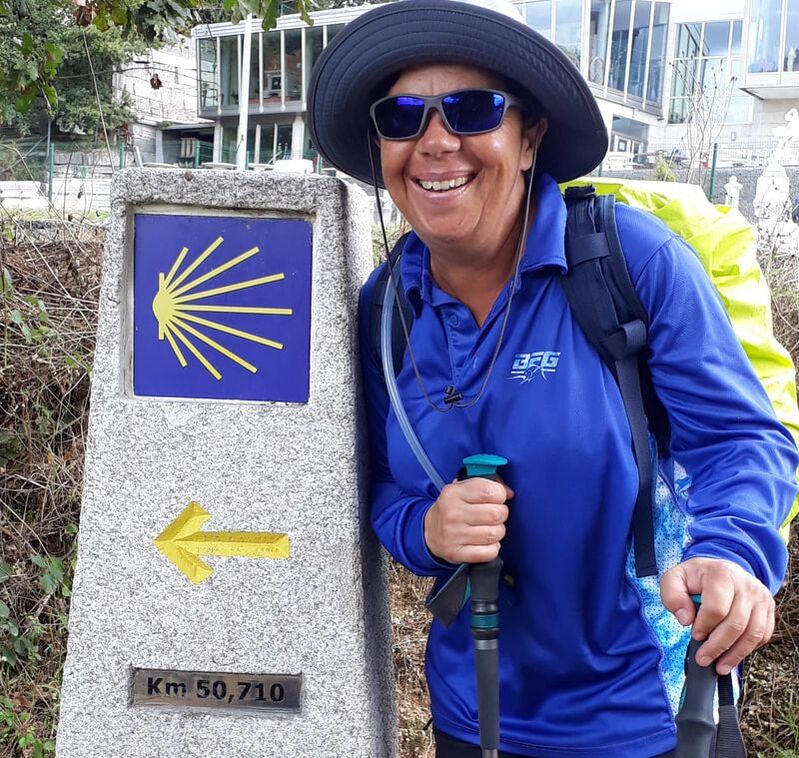 Portuguese Camino 2019 Portuguese Camino 2019
Travel blogs
New Zealand 2008 Tibet 2007 New Zealand 2006 Melbourne 2006 United Kingdom 2004 Athens Olympics 2004 Peru 2003 Beijing to Athens 1994 Nepal 1991 Categories
All
Archives
December 2019
|
|
I acknowledge the traditional Custodians of the land on which I work and live, the Gubbi Gubbi / Kabi Kabi and Joondoburri people, and recognise their continuing connection to land, the waters and sky. I pay my respect to them and their cultures; and to Elders past, present and emerging.
|
© 2024 HARI KOTROTSIOS
|
